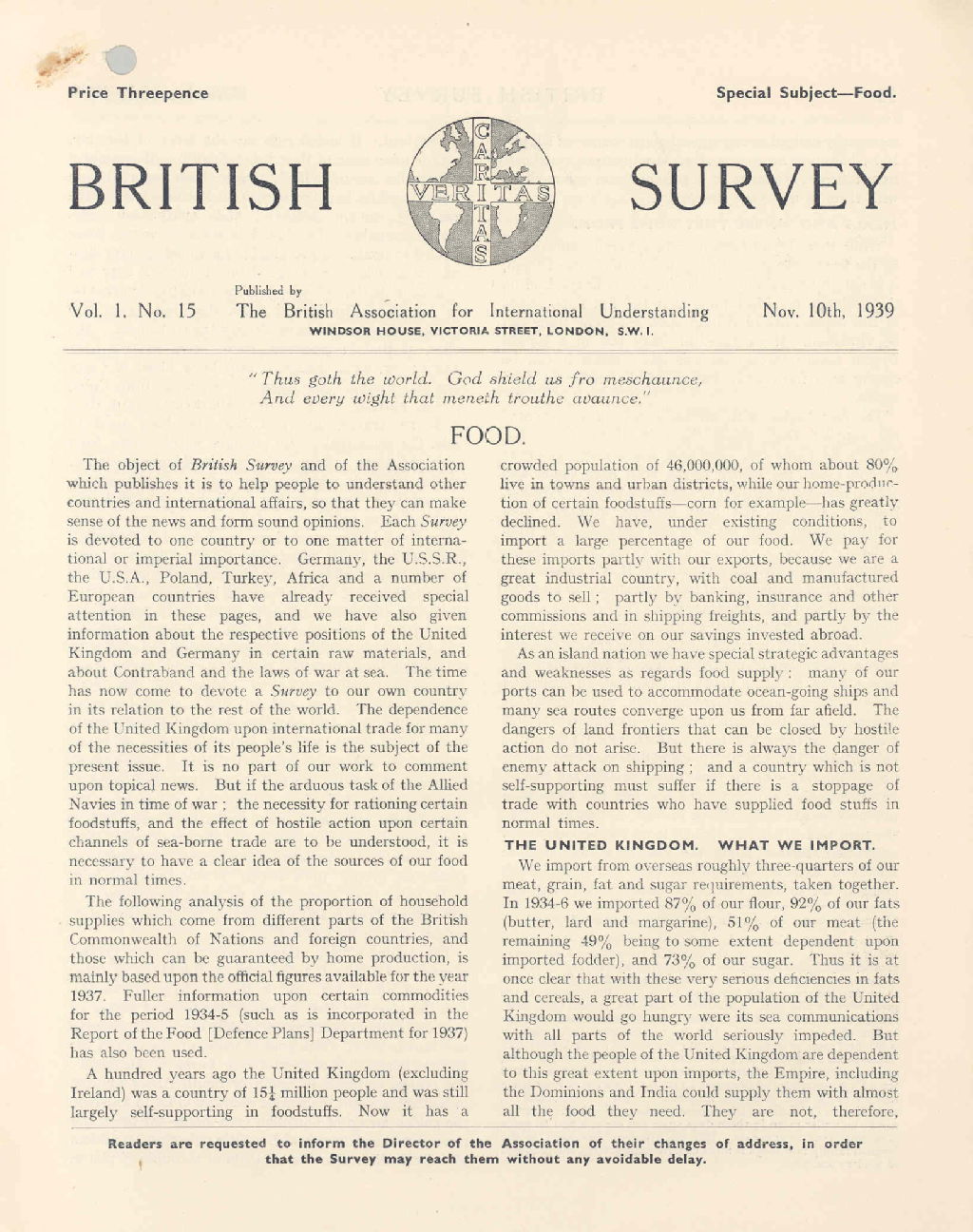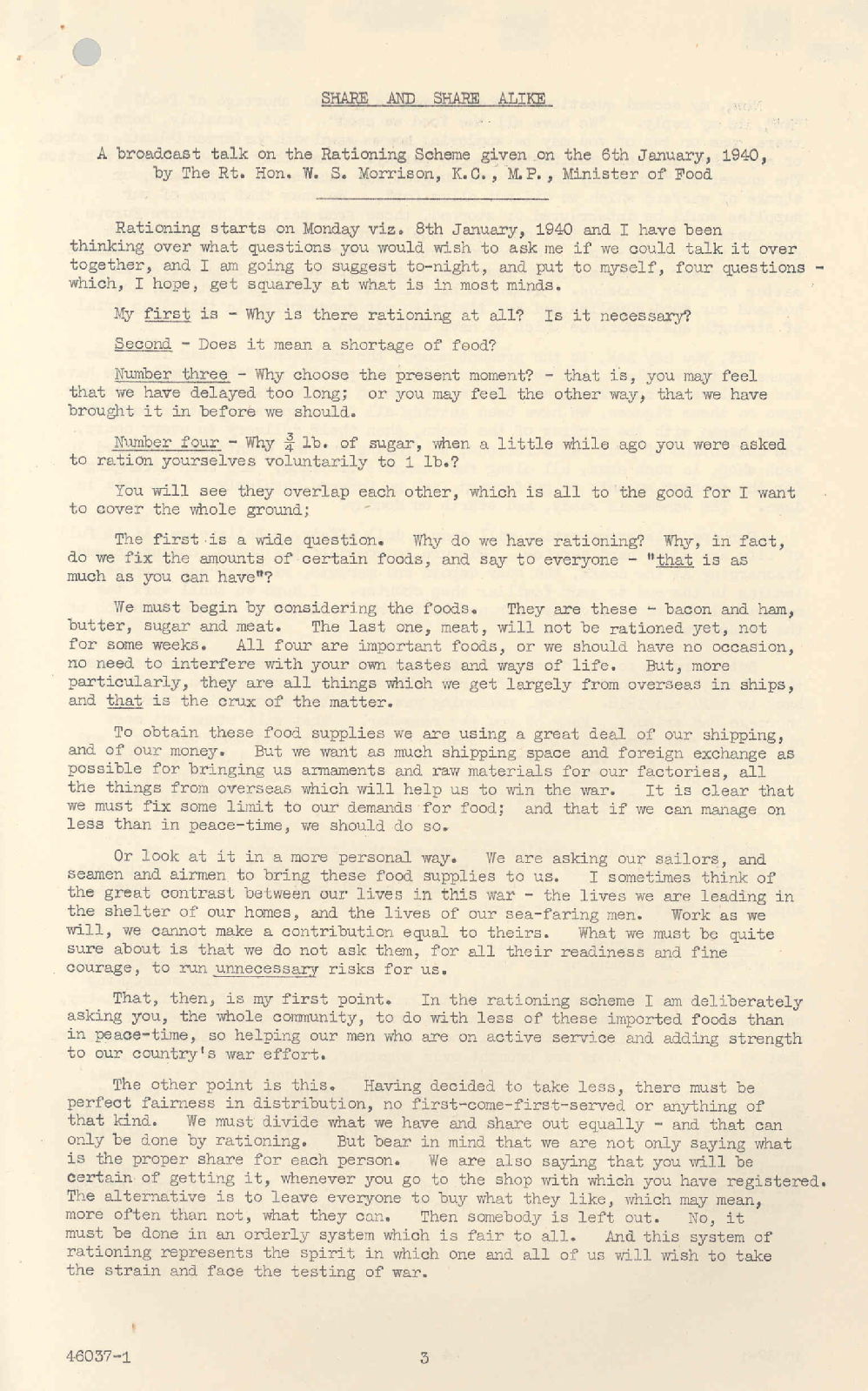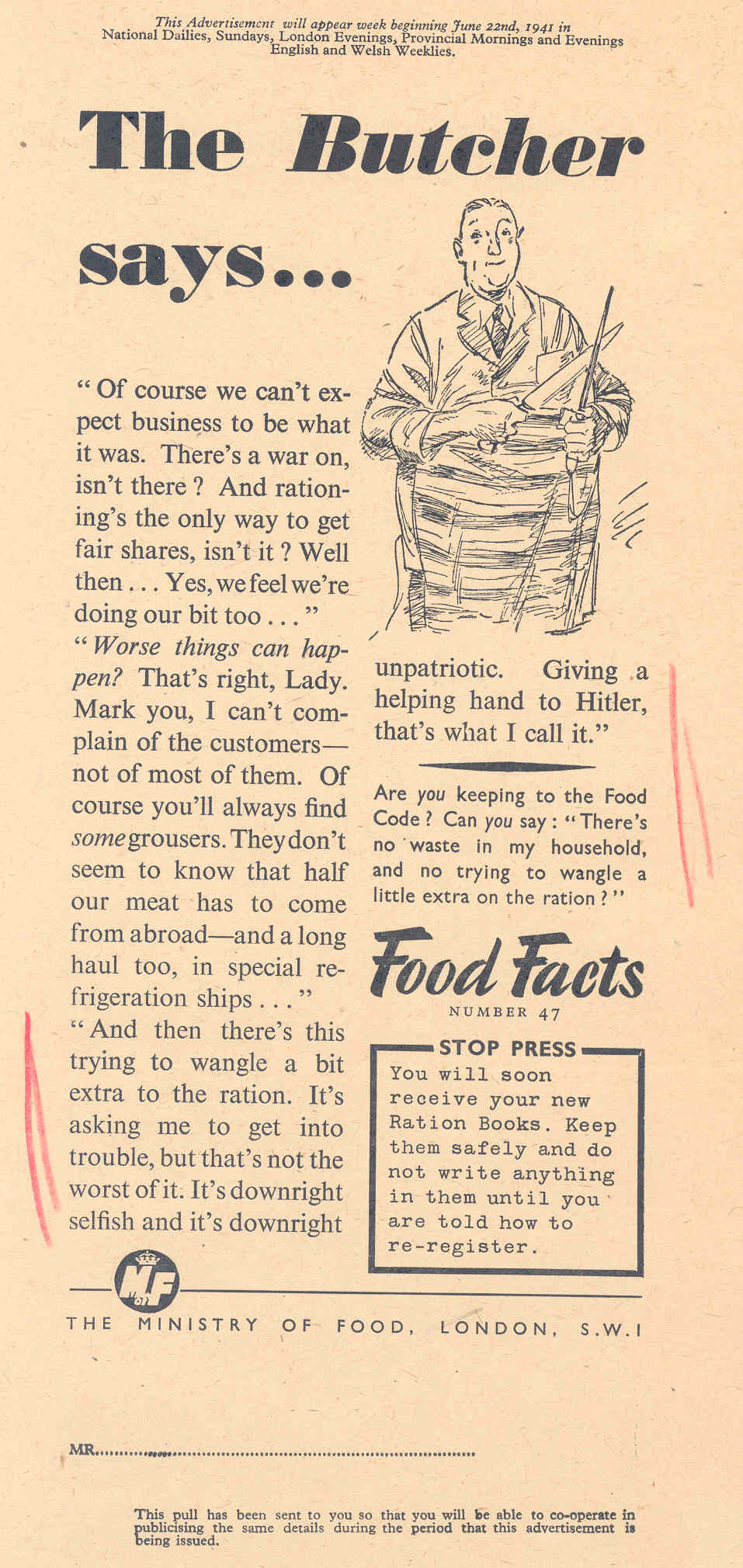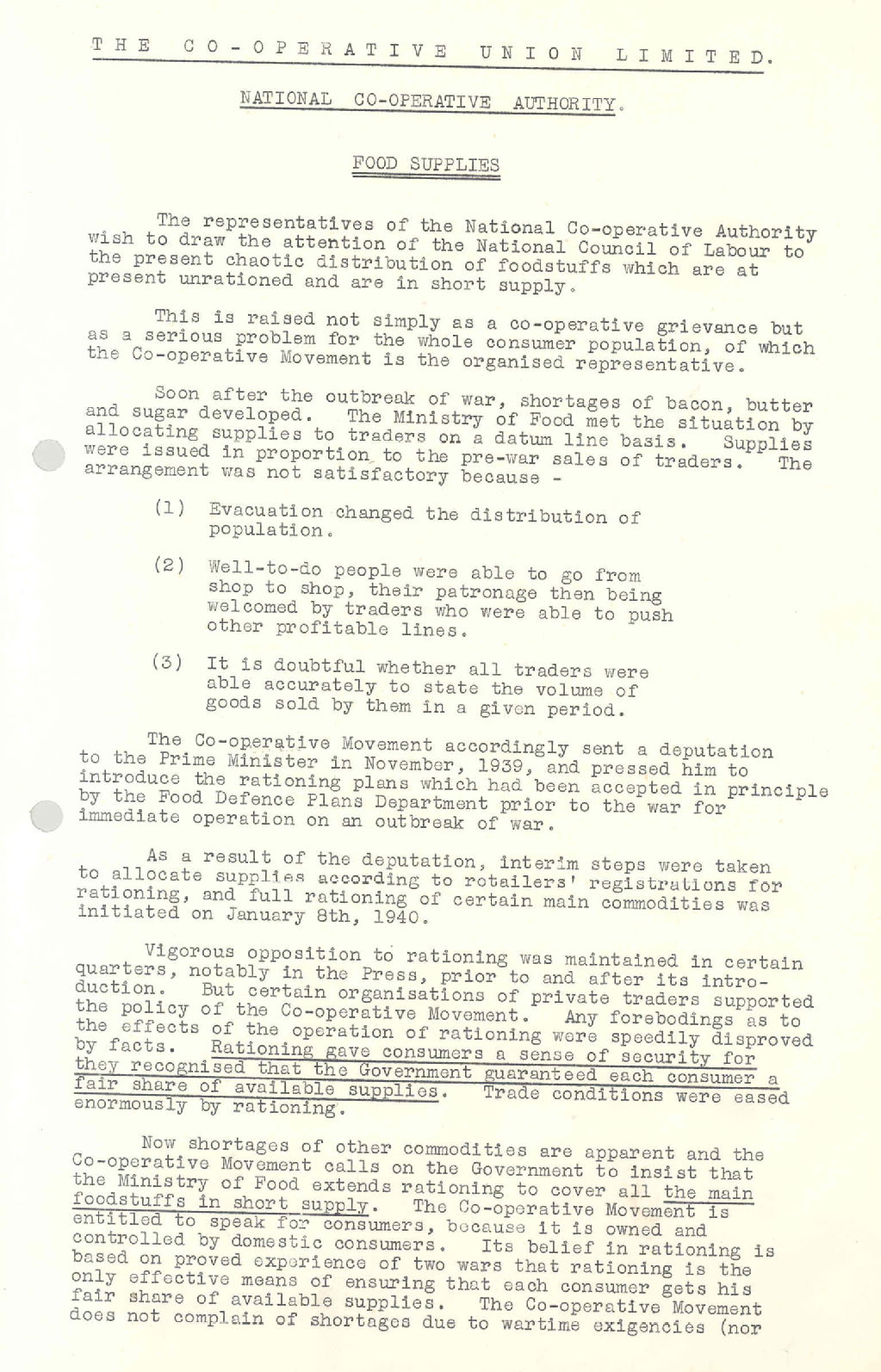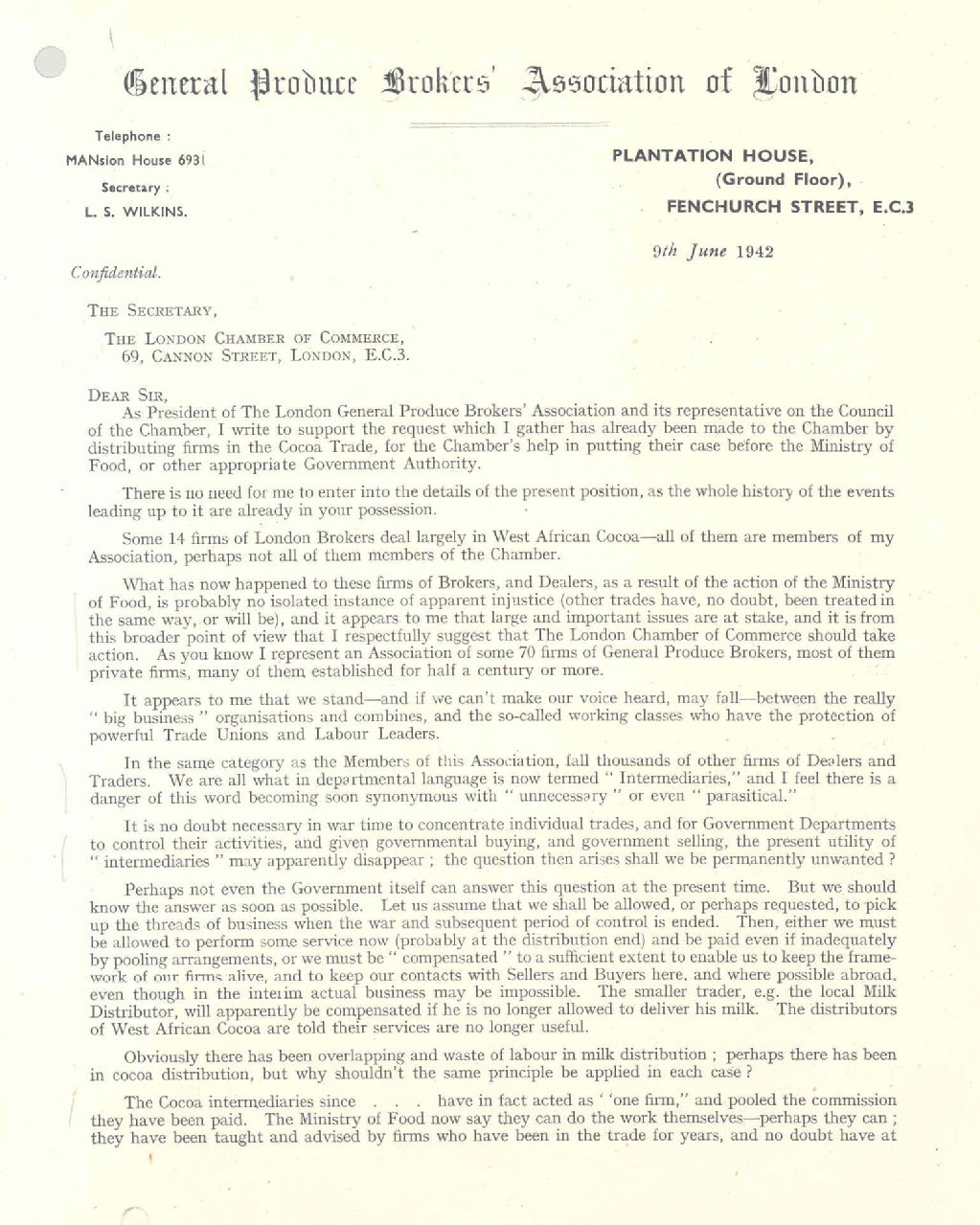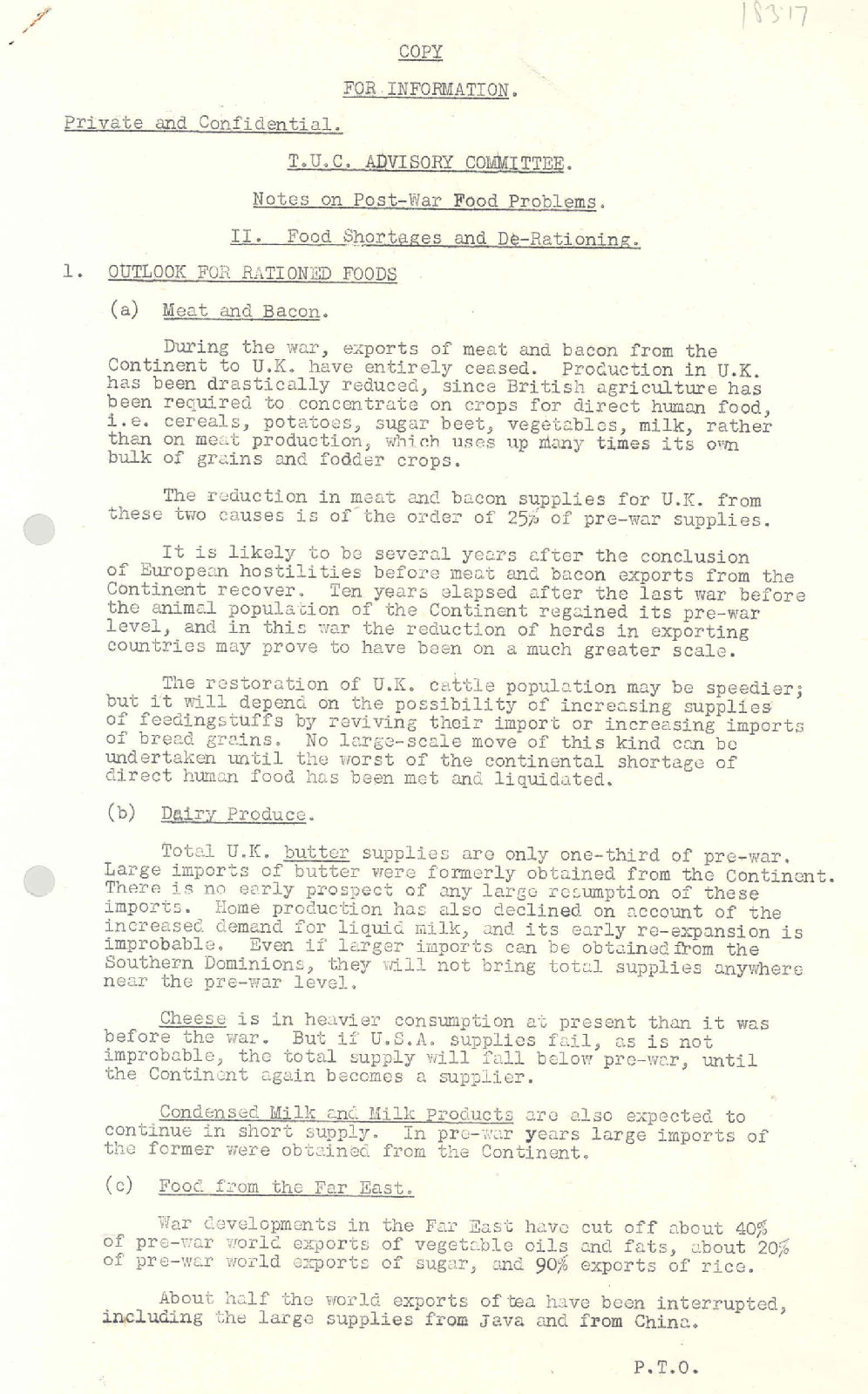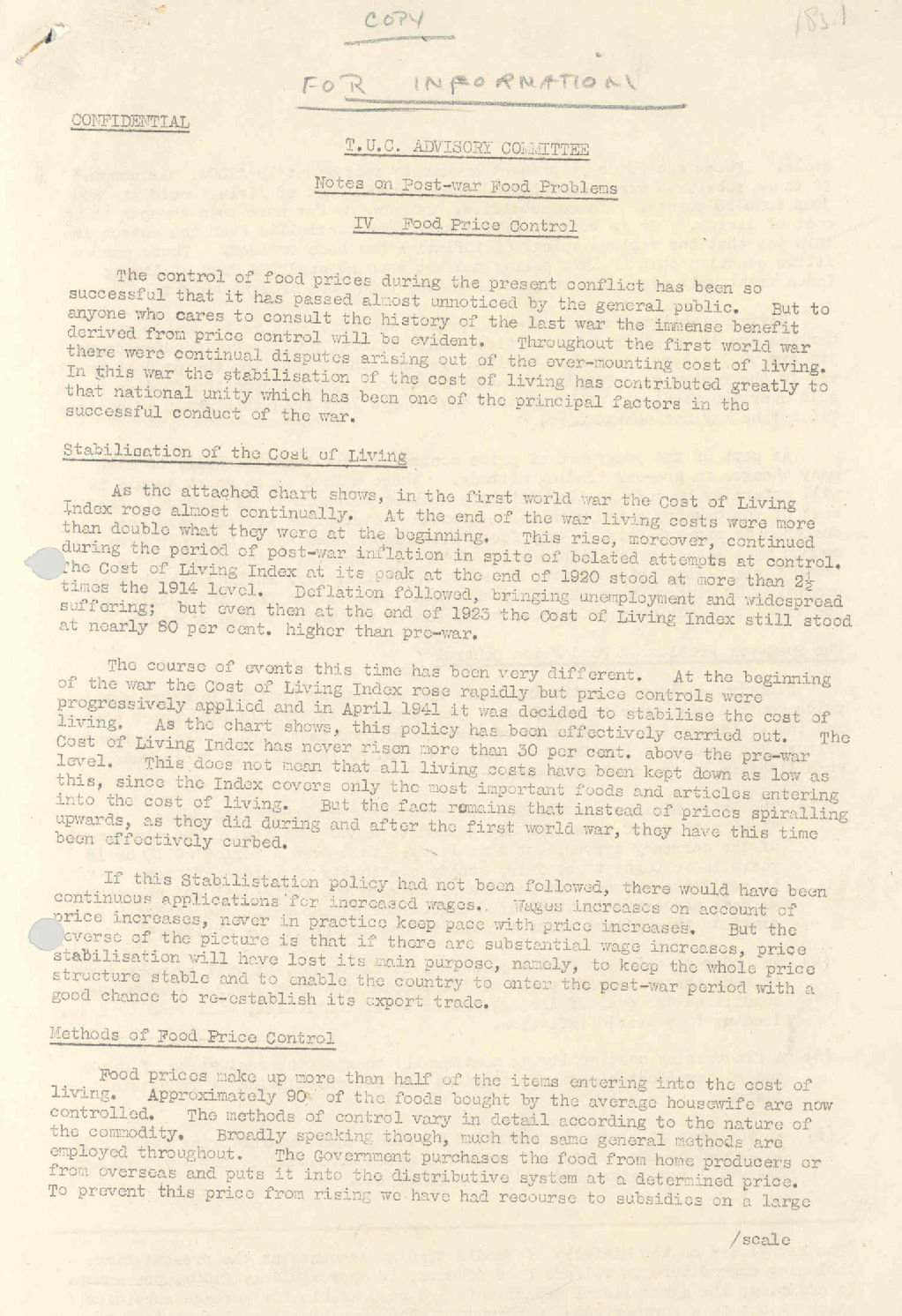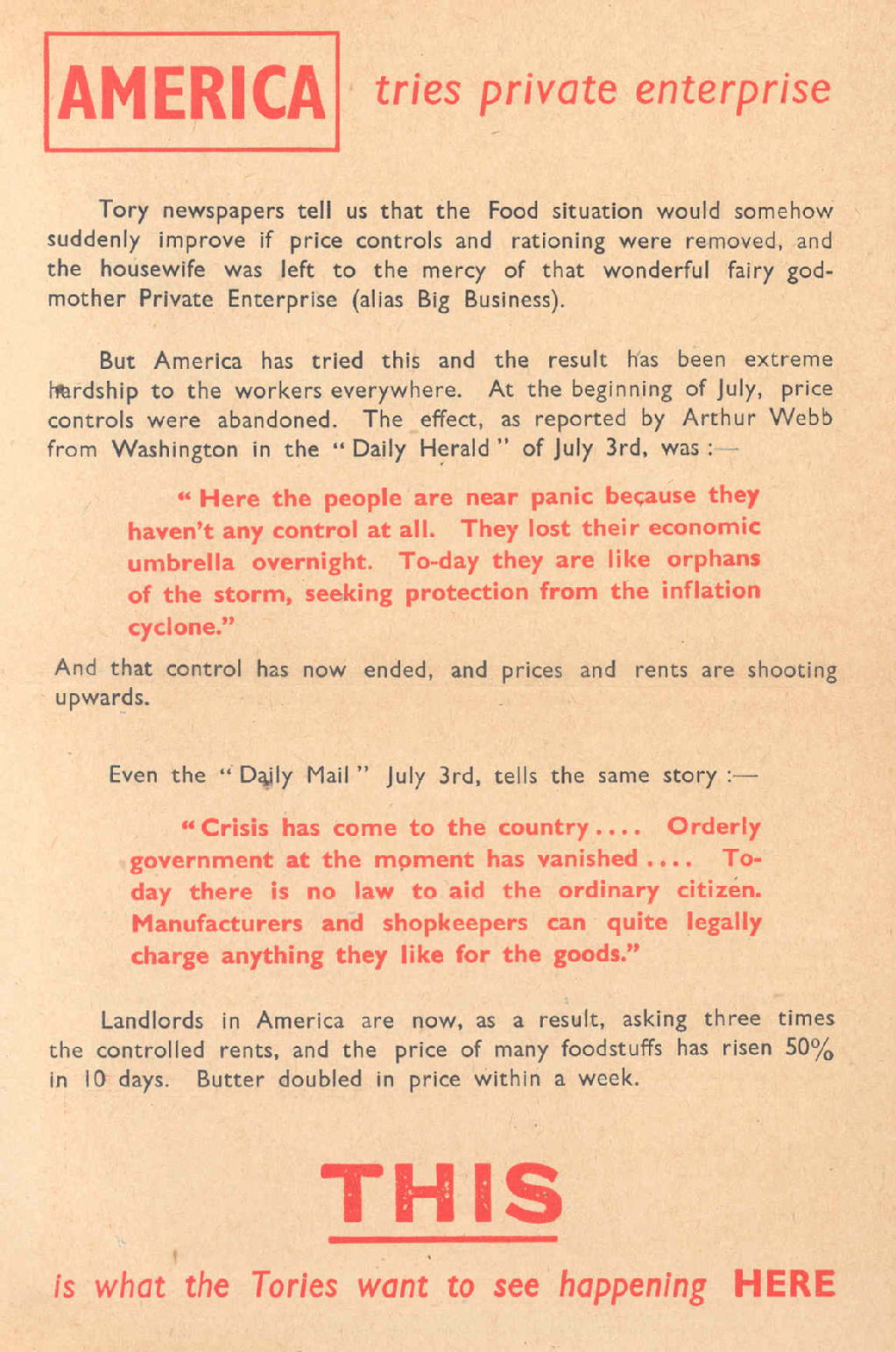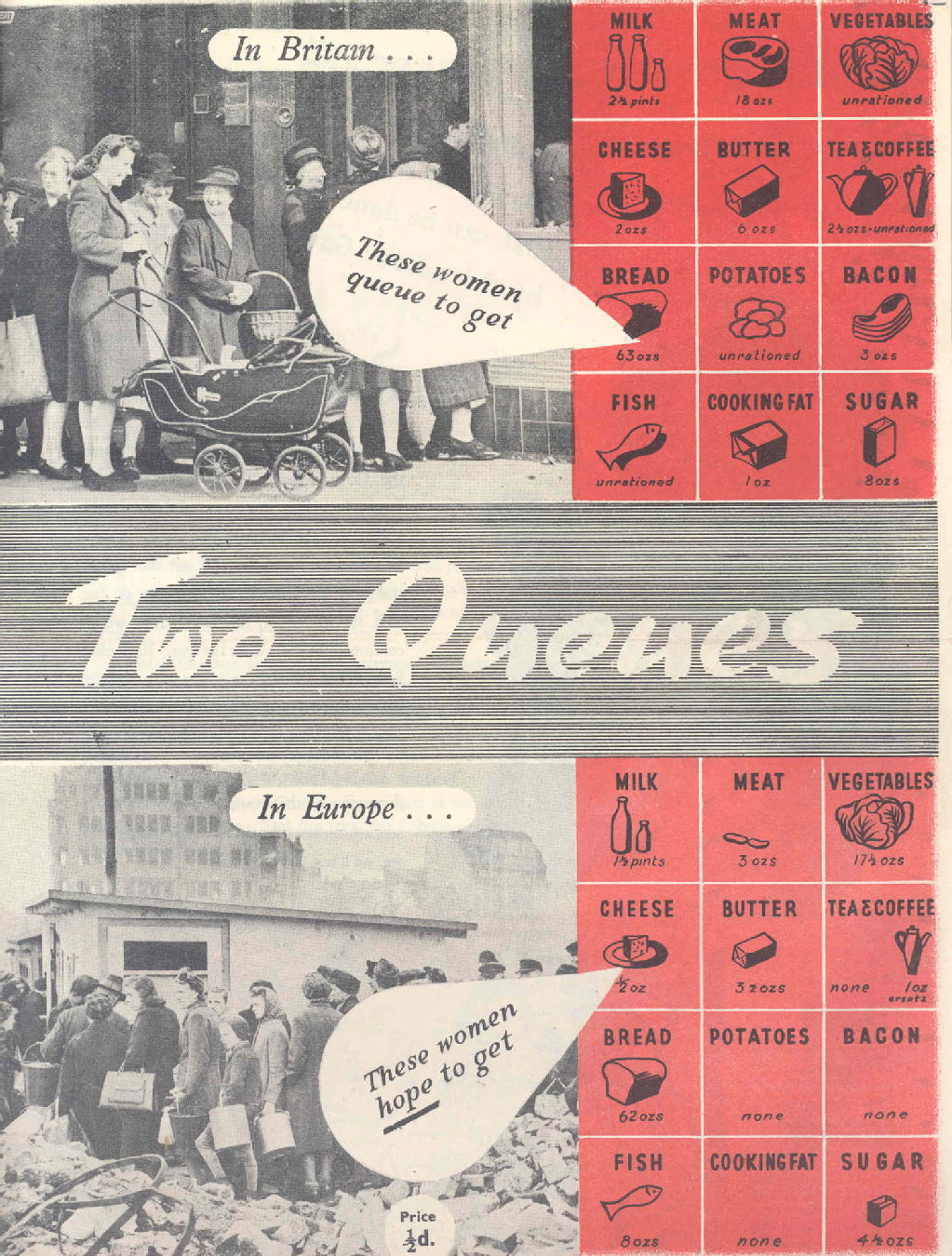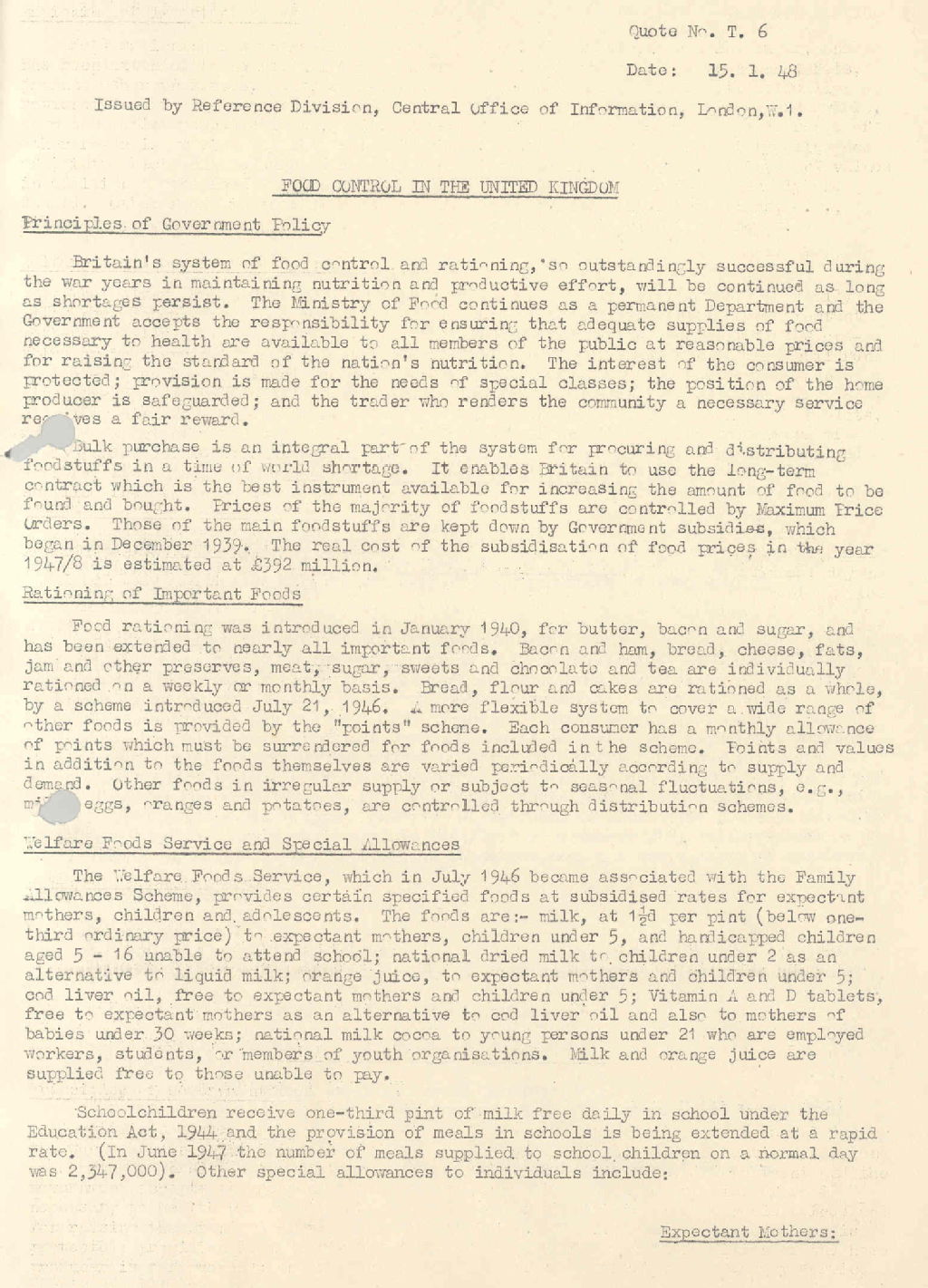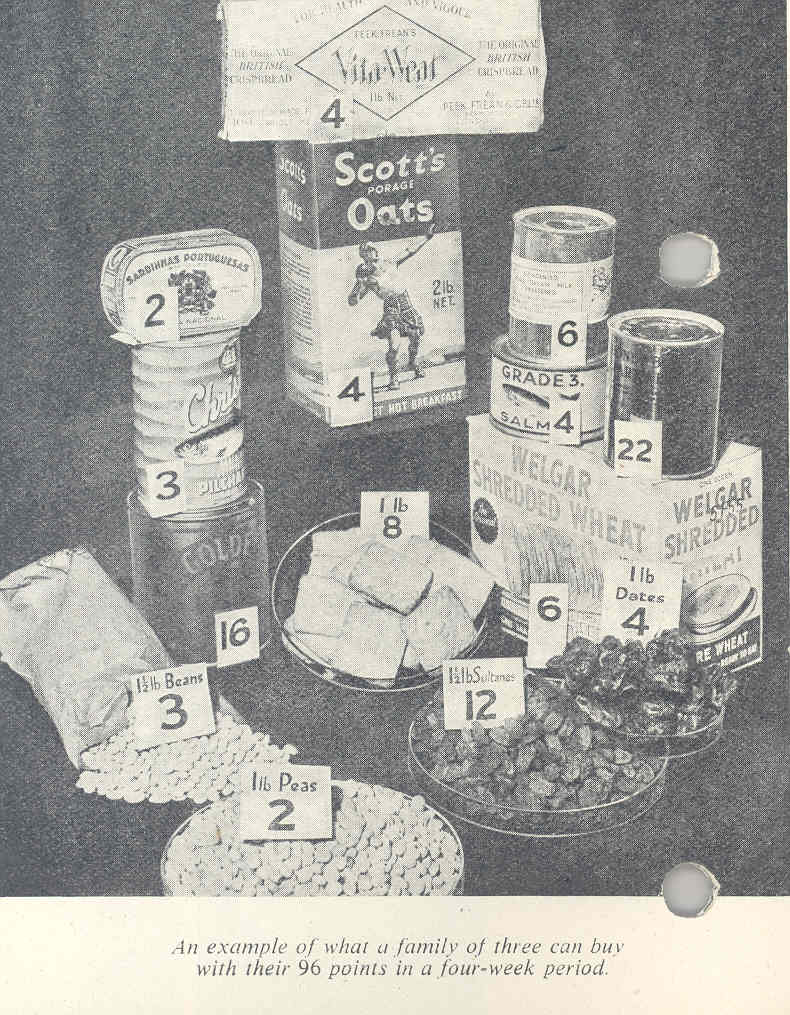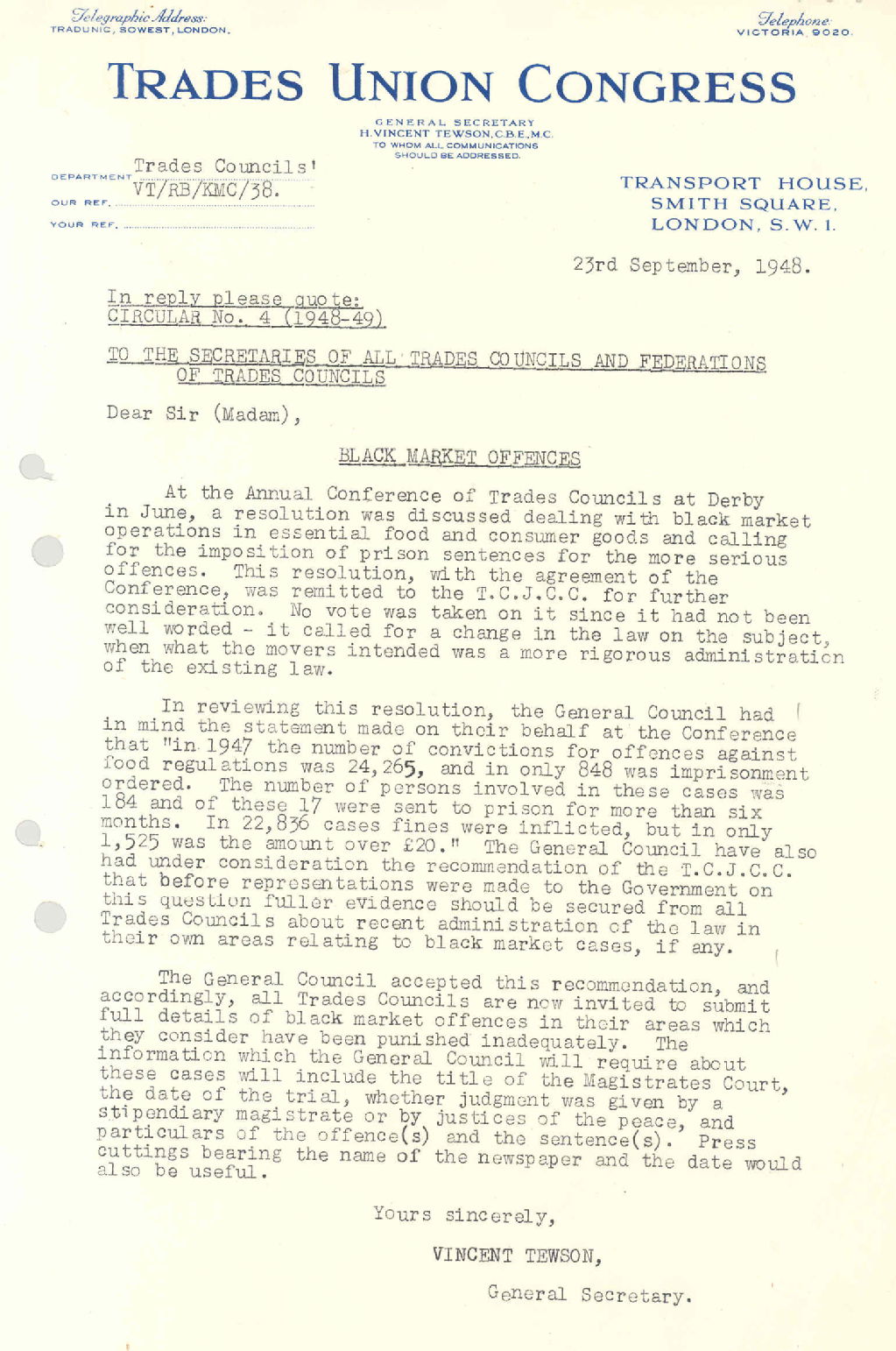Case study 1: Food rationing and price control
A study of the control of food (and the "domestic economy") during and after the Second World War requires a consideration of the wider economic and social conditions of the time. The ten documents reproduced here relate to rationing and the regulation of food, but also illustrate broader economic issues such as Britain's dependence on international trade and its relationship with the Empire, the logistics of food distribution and population movement (for work, military service and through evacuation), debates over the extent and duration of state control and restrictions on private freedom, and concern about the possibility of civil disorder caused by food shortages and a rising cost of living (based on the experiences of the First World War).
Document 1
'British Survey', vol.1, no.15: Food, 10 November 1939
'British Survey' was a fortnightly publication issued by the British Association for International Understanding. This issue was prepared in collaboration with the Ministry of Food, and was circulated with the Ministry of Food Bulletin no.10, 15 November 1939. It looks at "the dependence of the United Kingdom upon international trade for many of the necessities of its people's life" and analyses the proportion of household supplies imported from the Empire and elsewhere.
From the 'Miscellaneous collection'; document reference: MSS.21/1311/10
Document 2
'Share and Share Alike', January 1940
Text of a broadcast made on 6 January 1940 by W.S. Morrison, Minister of Food, two days before the introduction of food rationing. The public announcement (almost certainly made through the B.B.C.) attempts to answer key questions on the subject of rationing, including "is it necessary?", "does it mean a shortage of food?", and "why now?". This published version of the broadcast is taken from the Ministry of Food bulletin, no.16, 12 January 1940 (the full bulletinLink opens in a new window is also available online).
From the 'Miscellaneous collection'; document reference: MSS.21/1311/16
Document 3
'Food Facts', 1941
Copies of Ministry of Food press advertisements published between June - November 1941. They emphasise the idea that trying to beat the ration is "giving a helping hand to Hitler", and give examples of bad practice by members of the public.
From a file on food rationing, included in the archives of the Trades Union Congress; document reference: MSS.292/183/4/2-6
Document 4
'Food Supplies', 6 March 1941
Report produced by the National Co-operative Authority, part of the Co-operative Union Ltd. It expresses dissatisfaction with the government's handling of food distribution and rationing, and advocates greater central control, through the rationing system, to allow fair distribution of goods. The Co-op. was one of the few food retailers which operated on a national scale (and had strong links with the labour movement).
From a file on food rationing, included in the archives of the Trades Union Congress; document reference: MSS.292/183/2/29
Document 5
Government and the middleman, 9 June 1942
Circular issued by the General Produce Brokers' Association of London, reproducing correspondence between the Association and the London Chamber of Commerce. The Association protests in strong terms about increasing "State or "Combine" Control" over the purchase and distribution of food (West African cocoa is given as an example), and expresses fears that "monopolistic buying, and controlled selling ... denies any personal initiative" and may lead to the collapse of private brokerage firms.
From a file on food industry control of supply and prices, included in the archives of the Federation of British Industries; document reference: MSS.200/F/3/E3/23/1
Document 6
'Notes on Post-War Food Problems': 'II. Food Shortages and De-Rationing', 25 January 1944
Confidential memorandum produced by the Trades Union Congress Advisory Committee. It considers the likely supply situation once the war is over, and looks at methods of rationing relaxation and managing the transition to a free market.
From a file on 'Food Rationing. Post-War Food Problems', included in the archives of the Trades Union Congress; document reference: MSS.292/183.121/8/2
Document 7
'Notes on Post-War Food Problems': 'IV. Food Price Control', 21 January 1944
Confidential memorandum produced by the Trades Union Congress Advisory Committee. It uses government figures to contrast the apparent success of food price control during the Second World War with the more unstable situation during the First World War.
From a file on food rationing, included in the archives of the Trades Union Congress; document reference: MSS.292/183/4/32
Document 8
Food - a political battleground, 1946
Examples of two Labour Party leaflets issued after the first year in office of the 1945-51 Labour government. They contrast the managed economy in Britain with the devastation in mainland Europe and the immediate post-war return to a free market economy in the United States.
From a file of Labour Party publications, included in the archives of the Transport and General Workers' Union; document reference: MSS.126/TG/RES/X/1029A1/1
Document 9
Post-war rationing, 1946 and 1948
On left: Central Office of Information (COI) press release from 15 January 1948, which explained government policy on food control in the United Kingdom.
On right: Illustration giving an example of the amount of rationed food a family of three can have in a four week period, taken from a September 1946 COI booklet on 'Rationing of Food in Great Britain' (the rest of the bookletLink opens in a new window is also available online).
From a file on food rationing, included in the archives of the Trades Union Congress; document reference: MSS.292/183/5
Document 10
'Black Market Offences', 1948
In September 1948 the Trades Union Congress asked local trades council to "submit full details of black market offences in their areas which they consider have been punished inadequately". A summary of the responses was produced on 6 December 1948 - this includes information about the type of black market offences that were prosecuted through the courts.
From a file on 'Rationing: Black Market', included in the archives of the Trades Union Congress; document reference: MSS.292/183.4/6/5-6

